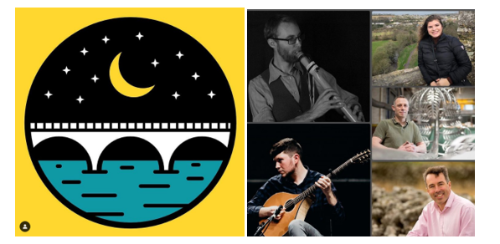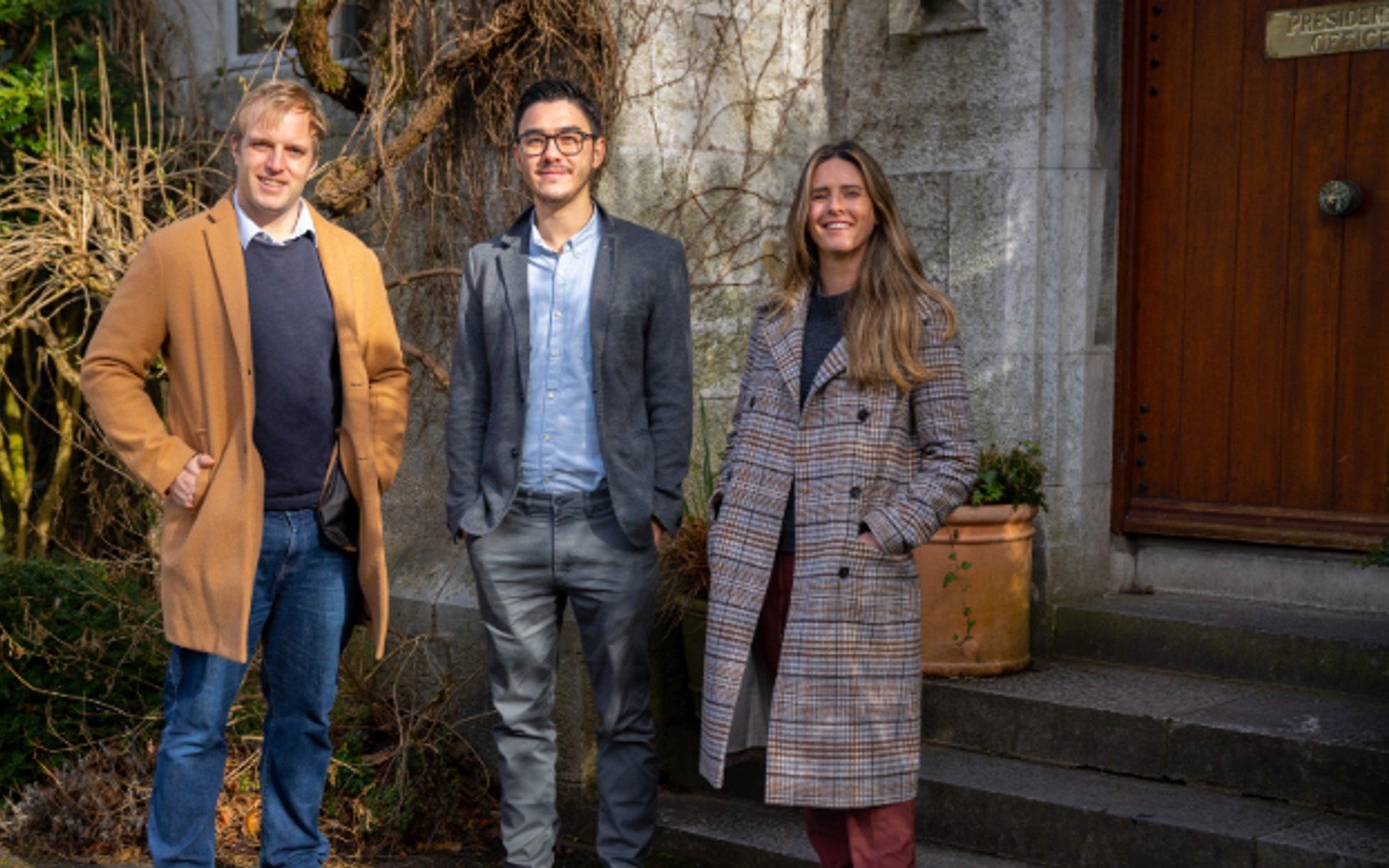
Three UCC Geography researchers awarded €1.75m to address climate and environmental challenges
Find out more
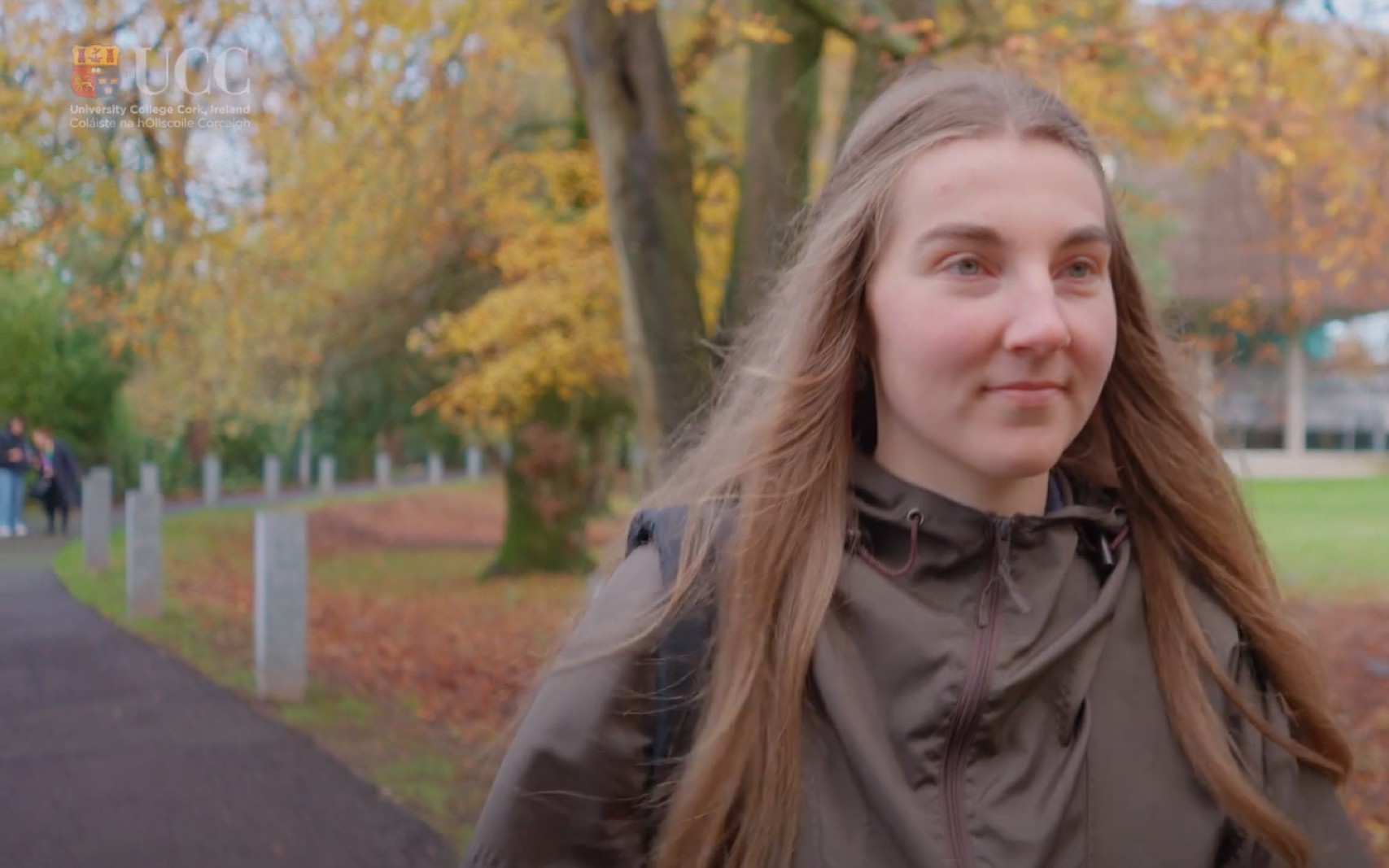
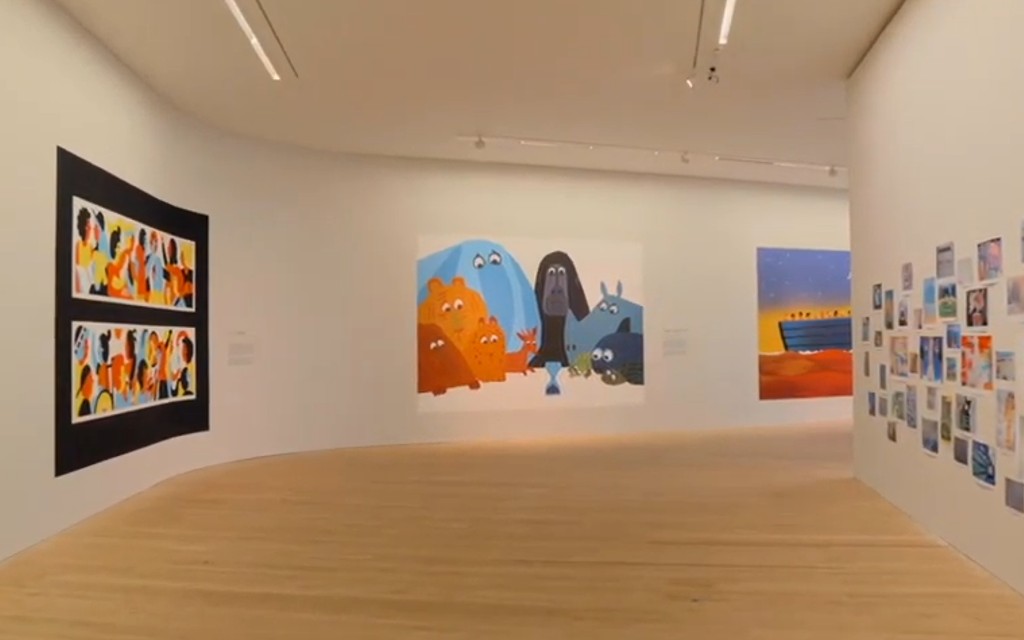

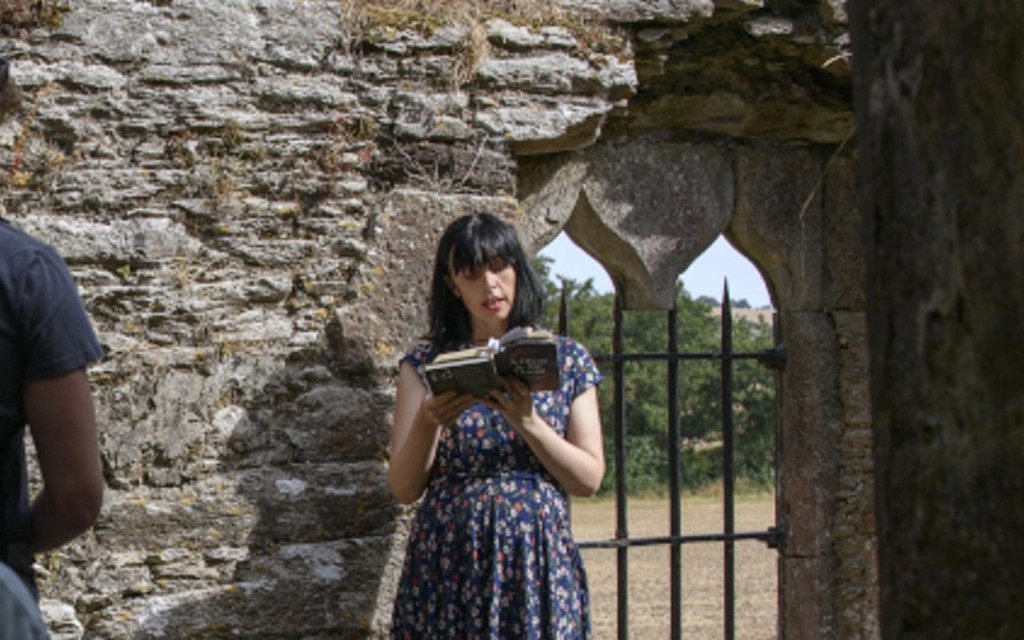
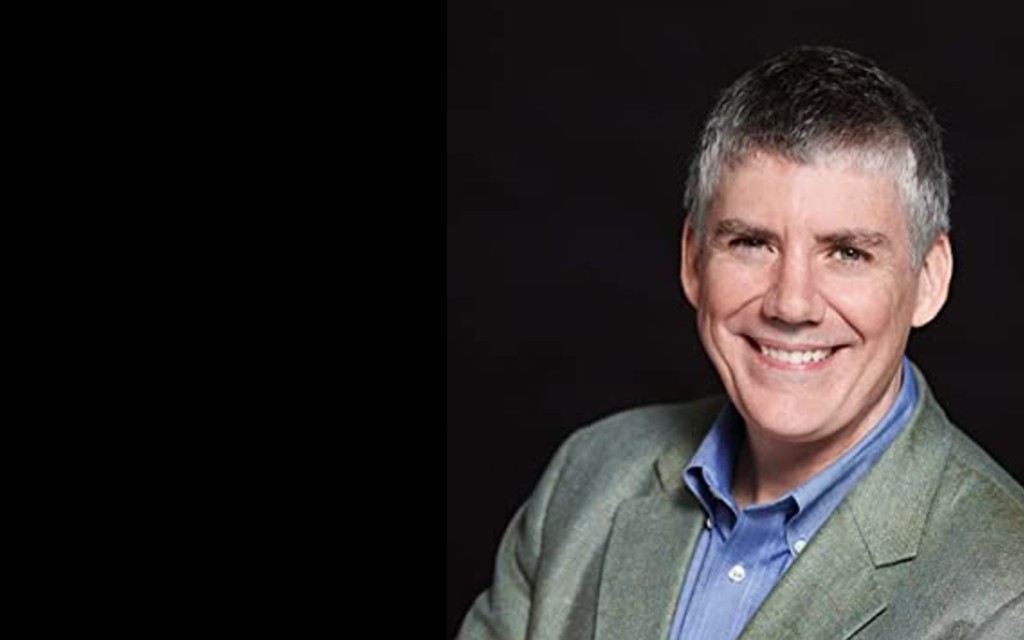
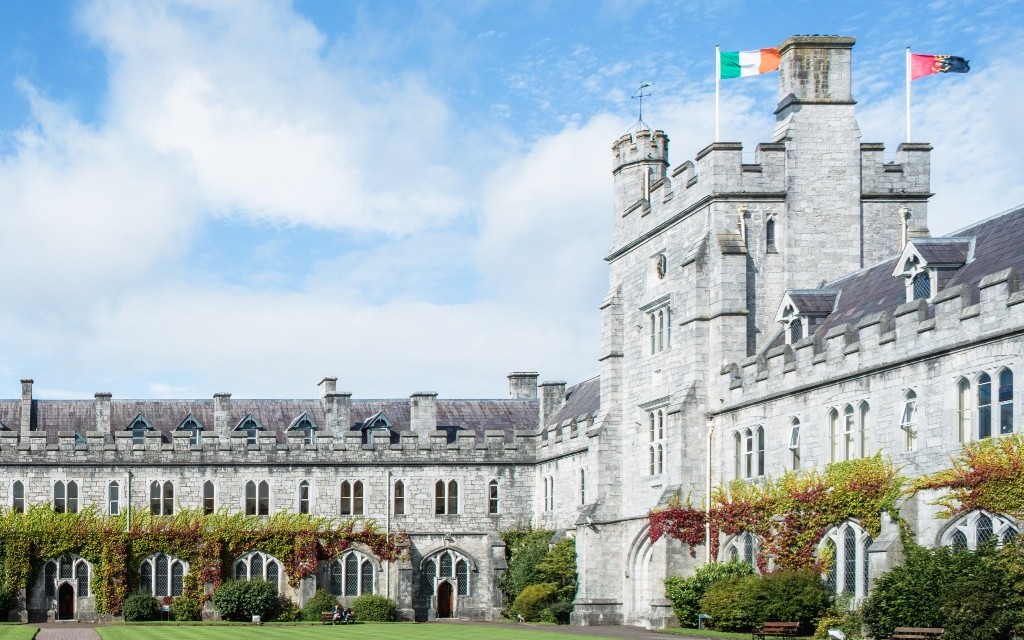
UCC in the World University Rankings
Explore UCC's progress across different world university rankings
Find out more
Aaron Kohrs
I chose to study MA International Relations at UCC because when I contacted schools across the United Kingdom and Ireland about studying at their universities, the professors at University College Cork were the warmest and most encouraging of me to study at UCC.
What I enjoyed most about studying at UCC was that I completed a work placement with a Cork local community organizer which involved me getting to know local nonprofits and helping others.
The friendliness of the people in Cork was a true highlight of living and studying there and I developed friendships inside and outside of the university. I found Cork to be homey, kind, and full of wonderful personality.
Paulie Rainbow
I was so gratified to find MA Gaelic Literature, the perfect programme to further my understanding of Irish history, literature and culture. The fact that it was available online made it available to me.
I loved the depth of information and the commitment of the lecturers. I received the encouragement I needed to complete my work.
While my great-grandfather emigrated from Cork, I have only been able to visit and not live there. I hope I have made my ancestors proud by going beyond tourism to academic achievement at this wonderful university.
Wauraoluwa Ayodele
I have worked as a women’s rights lawyer for close to 10 years and I was interested in a MA in Women’s Studies. Most universities offer a program in Gender Studies, but I was more interested in a strictly women’s studies program. I chose UCC because it is one of the few universities globally that still offers the MA in Women’s Studies.
The Women’s Studies program has been most beneficial to me as I have been able to understand feminist theories as relevant to women from an intersectional approach.
Beyond this, the ability to have meaningful discussions in class from an interdisciplinary angle that reveals the realities of women’s lived experiences is very valuable to me. Having classmates and lecturers that have different academic and cultural backgrounds is also really important and has exposed me to understanding feminist research as distinct from other research areas.
I like living in Cork because it is a very warm, quiet and calmer city than my home. The people in Cork are very friendly and always ready to provide guidance. In my first few weeks in Cork, I had random strangers on the street asking if I needed directions. I also had my Irish classmates offer to show me around the city. Overall, it is an amazing place to live.
Elisa Castrillon
My name is Elisa Castrillon, and I am a 25-year-old journalist from Columbia. I completed my undergraduate studies at the Universidad de Antioquia, located in the second-largest city in Columbia. Currently, I am pursuing my Master's in Women's Studies at UCC, a field that is gaining significant attention and discussion in my home country. This program is incredibly interdisciplinary, and the presence of many international students enriches our discussions, allowing us to learn from various perspectives and understand global issues more deeply.
I am involved in campus life, particularly in the athletics club, which has been a fantastic way for me to meet new people and expand my social circle. My studies at UCC are supported by a fellowship from the government, the Roger Casement Award, which is specifically for Latin American students. There are also opportunities available directly from the university.
I believe that being an international student at UCC offers a unique advantage. It allows us to develop a global viewpoint, regardless of the field of study. My experience here has been amazing, and I strongly feel that choosing UCC can provide a transformative experience for any prospective student, giving them a broader and more inclusive perspective on their studies and the world.
Name: Riva Pereira
Course Name: BA (Hons) Applied Psychology
Why did you choose UCC to study this course?
The applied psychology course at UCC is unlike any other. The focus on real-world applications of psychological research is what drew me to the course. I want to be able to effectively use my education in psychology to make a difference in people's lives and UCC proved to be the ideal institution to help me achieve my goals
What is your overall experience of Cork as a city?
Cork city is lively and exciting, the perfect student city with its nightlife and hidden gems across the city center. There are always new places to explore and history to uncover and learn about. As an international student, I've found it to be one of the most welcoming cities with the friendliest people.
How would you describe your first impression of the UCC campus?
My first thought about the campus was how there was something for everyone. The mix of modern facilities and historic buildings and the availability of both refreshing outdoor areas and comforting indoor spaces make sure that there's a place for every kind of student.
I found UCC through the Choctaw Nation, but it was the programs involvement with the Marginalized and Endangered Worldviews Study Center (MEWSC) that sold me on the course choice. As a person wanting to study Native Americans, there was no better option than having an entire, internationally connected study center dedicated to marginalized peoples. MEWSC was my selling factor, but there were so many attributes I enjoyed that I discovered after beginning the program. Being involved with MEWSC contributed to the enterprising aspects of the program that I really enjoyed. I was given not just freedom, but support, to follow my own interest within the subject of Anthropology. Additionally, unlike in the Untied States, I felt like my education wasn’t a competition. I think that lack of competitiveness too was due to the program size. My class was only about 12 people. I never felt like I had to fight to be heard or to receive help in class. We all, also, became quick friends and saw each other outside of school. Coming from a different country this also helped my transition into life in Cork. These were the biggest stand out qualities to me when I began the program, and still today watching as it continues.
I think most American’s don’t think to look at foreign colleges and, honestly, I didn’t either. I didn’t anticipate moving to a foreign country when I began my MA journey, but the experience was without a doubt worth it. I feel like I have grown as a student and an anthropologist. Today, I am still connected to the program and the anthropological community and am considering perusing a PhD in the subject.
The MA in Theatre and Performative Practices at UCC allowed me to weave together my life as an artist and my interest in performance research. By working closely with the caring and creative artist-researchers on faculty, I learned how theatre practice can cultivate new ways of knowing the world. The MA provided me with a bridge from my art practice into academia and prepared me to pursue a PhD in Theatre at Northwestern University.
I chose the MA Creative Writing at UCC because the course has a specific focus on the crafting and development of each writer’s individual voice, which is an aspect I had struggled developing. It also directly addresses the practical concerns of dedicating your life to writing, which is a focus that can be difficult to find at other universities. I was also really excited to step inside the rich literary tradition of Irish writing.
The most rewarding aspect of the course was the sheer exposure to exceptionally kind and talented writers, from the teaching staff to guest speakers and workshop holders (writers, publishers, editors, agents, etc.), all of whom wanted to impart their experience to students in a safe and encouraging environment.
Throughout the course, my confidence in drafting and developing my own creative work has increased exponentially. If I combine my continuous development with the wonderful network built throughout the course, I’d say my career path in creative writing has never looked brighter.
The MA in Arts Management and Creative Producing is a one-year taught program within UCC's Department of Theatre. I was lucky enough to be apart of the program in its first year of existence, and what a unique year it was! The program has an excellent design in providing hands-on and real-life experience working closely with current professionals in the industries. This program is also unique in UCC's partnership with the well-established Cork Opera House.
The cohort of ten was brilliantly selected by Dr. Marie Kelly, program director. The individuals of the group had specialties in commerce, theatre, dance, music, literature, and visual art. Together the cohort developed the production company Tús Nua (Irish for new beginnings) and the interdisciplinary arts festival Half Moon Festival. The festival was originally set to debut in multiple venues across the city of Cork, April 25 - May 1st. With the emergence of Covid-19, the festival was paused... along with the rest of the world.
We started the program by spending a week in Dublin attending the Fringe Festival. Here we attended many pop-up theatres across the city that gave affordable platforms to independent thinkers. Across the first semester, we attended award-winning performances in Corks leading theatres, the Cork Opera House, and The Everyman. We also attended gallery showings at the National Gallery of Ireland (NGI), the Crawford Art Gallery, and the Lewis Glucksman Gallery. My favourite performances were Swan Lake (Irish version), Woman Undone, and How to Square a Circle. One of the most memorable moments came from viewing the painting The Sunshade, William John Leech – 1913, NGI.
Courses taught on the roster were diverse in subject and spanned across arts, business, and humanities. The courses were: the arts landscape, producing and curating, strategies in artistic leadership, management, and marketing of museums, digital humanities, digital marketing, management and organization, strategic management, and contemporary issues in HR. These courses were packed full of practical information and presented many visitations from professionals from the industry.
Of course, the most fascinating aspect of the program was the final project and the development of the interdisciplinary arts festival, Half Moon Festival. The 10 individuals of the program acted as owners and producers of this project. Using their diverse expertise, they banded together to create a platform for their and their artists' voices to be celebrated. The festival could not have been as amazing or successful without these individuals. Here I learned the importance of keeping an open mind and working as a team. These relationships will always be cherished in a way that only a few get to experience. An additional thank you must be given to Aisling Fitzgerald, Tús Nua’s mentor and confidant – an invaluable member of HMF success.
Our project honoured the generosity of two nations, the Choctaw and the Irish. A relationship that began in the 1840s during a time of despair and need for Ireland. This act of generosity is referred to as ‘The Gift’ and it continues to touch the hearts of many generations today. Using art as a mode of communication and reflection, this event highlights Choctaw and Irish artists while giving homage to this historical moment. Five artists of Choctaw and Irish descent were commissioned for solo and collaborative work in creative writing, music, sculpture, and discussion.
Courses taught off the roaster were resiliency and crisis management. This resiliency didn’t only shape the festival as a whole, it shaped our individuality as students, producers, and artists.
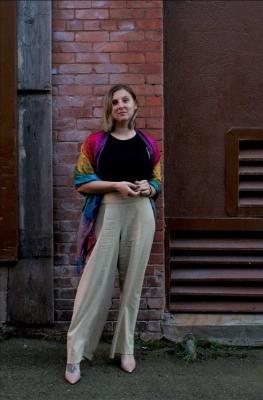
How did you discover the Ma Anthropology at UCC, and what attracted you to the programme?
In late 2019, I came across the MA Anthropology program at UCC while trying to decide what to do for my future. I had just completed a BA in the Study of Religions and Geography and during this time I had developed a keen interest in all things culture, particularly in relation to religions and spirituality. A few months prior, I was involved in founding the UCC Chinese Society and was currently serving as the Chairperson for the society. We held a number of different events, all with the aim of disseminating education on the cultural diversity of Chinese populations. Working with this society truly opened my eyes to the importance of understanding and preserving cultural diversity. With all of this in mind, I felt that the MA Anthropology would be an excellent programme to gain a further education in this area, as well as broadening my horizons.
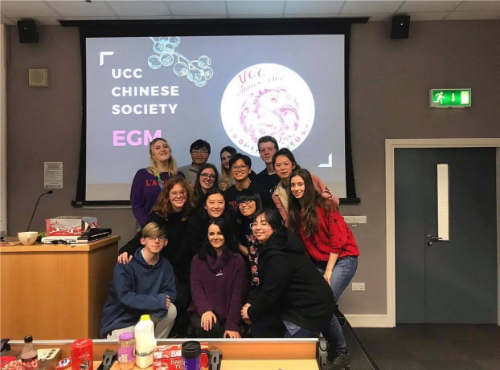
Did you feel connected to the University during your experience? What was it like communicating with and getting to know your lecturers and fellow classmates?
I absolutely felt connected to the university during the MA Anthropology programme. Despite the online nature of our classes, my classmates and I managed to form a tight bond and I am very happy to say that I believe we will be friends for life. We were able to set up a group chat where we could chat and get to know each other better. Additionally, we would frequently meet for online gatherings on a virtual classroom website called ‘Gather Town’. Our lecturers for the programme were incredibly engaged with us as a class; checking in on us during this difficult year and making sure to get to know us all at an individual level. Throughout the year, I felt thoroughly supported by all of our lecturers, and their dedication to making our programme as fruitful as possible did not go unnoticed.
What was your favourite aspect of this programme?
I absolutely loved how many opportunities we were given to engage with different projects and to gain further knowledge on Anthropology through lectures and classes external to the programme. In particular, we had the opportunity to work on a fantastic project entitled “Fragmentary Institute of Comparative Timelines,” or “FICT”. This project was part of our international Winter School module where we had the opportunity to work with Italian design students from the University of Bozen-Bolzano. The aim of this project was to produce alternative timelines for a world in which colonialism did not exist, placing our focus on a particular community or region. From this timeline, we then produce an artefact which encapsulates the overall aim of our alternative timeline. We are currently working on producing our physical artefacts for display at an exhibition. This project was an incredible opportunity to put all of our knowledge into practice, as well as make friends with the fantastic design students from Italy.
What would you say to someone who was considering enrolling in this programme?
Go for it! You will not regret it. Coming into this programme, I had no prior experience in Anthropology and, as a result, it felt quite daunting. Despite this, I settled in easily and was able to gain a phenomenal education in this area in just a few short months. You will receive copious amounts of support from the department and your peers. If I could do it all over again, I would. It has been a fantastic experience.
Since studying this Masters, has your perspective/understanding of Anthropology changed?
Definitely. As I said before, I had no prior experience in the area of Anthropology. With the hard work and dedication of our lecturers, however, I have received an invaluable education. I have truly come to understand just how important Anthropology as a discipline is. The documentation and understanding of the cultural diversity which our world has to offer is integral to promoting a world of inclusivity and acceptance.
How do you feel your Masters at UCC will benefit you in your career? Do you think it sets you apart in your field?
Anthropology is a diverse discipline. Throughout this year I have gained an understanding of theories and concepts, while also having the opportunity to put this knowledge into practice through projects and research. I believe that this will set me apart in the field as I have had the ability to diversify and update my skill set.
Finally, what are your plans for the future?
The MA Anthropology programme has allowed me to foster a love for research, particularly ethnographic research. I have a number of ideas for my future; a PhD possibly, or partaking in research external to universities. The opportunities are endless!
How did you discover the MA in Teaching Chinese to speakers of other languages at UCC, and what attracted you to the programme?
Back in Beijing, representatives of UCC went to Zhengzhou University (ZZU) where I did my bachelors to showcase UCC. I was fascinated by the colorful pictures showing the international studying environment, spacious and lovely student dorms as well as the archaic building of the west wing. It was the first time I had thought to go out of my country to see a bigger and different world.
Did you have any hesitations about studying abroad, or in Cork?
Honestly speaking, my decision was made quickly, although my family were concerned about my safety, the language challenges and culture shock. We did a lot of research online about Ireland. Thankfully, Ireland is a hospitable country and Irish people are very kind, especially the Cork people. I did my bachelor’s in foreign linguistics and literature, so I wasn’t worried too much about English. Instead, I regarded this experience as a great opportunity to improve my second language.

Did you feel connected to the University during your experience? What was it like communicating with and getting to know, your lecturers and fellow classmates?
I found that I was closely connected to UCC despite the fact that we did have a lot of free time to study on our own. My lecturer professor Sparvoli Carlotta stayed in Fudan university, China for around 4 years and she has a very good understanding about Chinese culture and our way of thinking. She helped each of us find a local Irish student who are studying Chinese in UCC as language partner. My language exchange period with my language partner Patrick lasted for about a year until he went to Shanghai university as exchange student. We became very good friends and both of us made so much progress in our language learning.
I also can never forget about the good times I had with my classmates of going to Mardyke together where I learned how to swim, discussing how to teach Chinese to local Irish primary students as part of our program, and the sad time when we said goodbye to each other after graduation.
What was your favourite aspect of this programme?
My favorite part of this programme lies in the observation activity we did. We were allowed to go to Chinese teaching classrooms to observe how other experienced teachers teach, make reflections and learn from them. I find it helped a lot in my own teaching activities.
What would you say to someone who was considering enrolling in this programme?
This programme is very interesting and will benefit those who aspire to become a teacher. Pedagogies suitable for various languages are included and some specific features of Chinese were covered as well. I think it gives Chinese students a great chance to look at our language from a different perspective, but you don’t have to worry about it at all if you are not Chinese.
Since studying this Masters, has your perspective/understanding of teaching Chinese to speakers of other languages changed?
What I learned from studying at UCC is very different from the way I saw how Chinese is taught in my home country. In UCC, I think keeping student-centered is of vital importance. I made reflections on my own teaching experience in the past and realized that I should put students instead of myself, the teacher, as the primary role.
What do you like most about being a teacher?
I love being a teacher because I love the interactions that happen between teacher and students. It is also a creative and learning activity in which I organize the teaching materials, create teaching activities, and reflect on the teaching results. I enjoy this whole activity because it keeps me thinking and making progress.
You have decided to stay in UCC to complete your PhD. Tell us more.
After my graduation, my professor suggested to me to pursue further academic study. I realized myself that I really enjoy doing research, so I started to apply for the PhD. This step is hard because in my hometown, women are expected to marry in their 20s and a lot of people still hold prejudice against woman doing a PhD. I am so lucky because I get so much support from my previous supervisor Carlotta and current supervisor Professor Martin Howard. I also have great understanding and support from my family.
Do you feel your MA in Teaching Chinese at UCC has benefited you in your career? Do you think it sets you apart in your field?
I learned a lot of theories in my MA, and I taught Chinese in a language school in Co. Kildare before I got my PhD offer. I applied what I learned to my teaching and the results is pretty satisfying. Based on the feedback from students and parents, they enjoyed my teaching so much and learned a lot!
Finally, what has been the proudest moment of your career so far?
One year after I finished my teaching with the Irish primary students, I was invited to present certificates to those who did great in their Chinese language learning. I was very happy to see the children grown up so fast and I am extremely proud for the progress they made in learning Chinese.
- How did you discover the MA in Sociology at UCC, and what attracted you to the programme?
I had my undergraduate’s studies in sociology while in Nigeria and after it I wanted to further my knowledge in that field. I wanted to check other universities in English speaking countries in Europe. This narrowed me down to England and Ireland as my top choices. I think what finally made me settle for Ireland and UCC in particular was the prompt response I was receiving as I communicated with the school and some nice stories shared by students who had studied here in Cork.
- Did you have any hesitations about studying abroad, or in Cork?
There was no hesitation about studying abroad or in Cork. I had known while in Nigerian an Irish missionary who was really a nice person and he was from Cork and had said few good things about his people so I had no fear of coming to Cork.
- Did you feel connected to the University during your experience? What was it like communicating with and getting to know, your lecturers and fellow classmates?
This is where UCC is unique by my estimation. The lecturers are warm hearted, encourage individual thinking and insight into discourses during lectures which for me was new and exciting. The connection with the university community was really easy especially with the way registration and orientation was made so easy. This indirectly set a relaxing tone which really gave me a good start. Given the fact that I met lecturers and workers in the university from different national background, race and religion, it was easy to feel and see people you can easily connect with.
- What was your favourite aspect of this programme?
Most lecturers gave me the opportunity to explore topics and ideas I was interested in. This gave me so much freedom to mature in things I was really interested in. Unlike other universities where assignments are given with specifications limiting one to certain topics or issues. This really made my studies relaxing because I often research on topics or issues, I already had interest in.

- What would you say to someone who was considering enrolling in this programme?
I will encourage him or her to go ahead because the world is evolving every day and understanding the society and the social interactions that occur either locally or globally is to understand the world and how to relate with it..
- Since completing this Masters, has your perspective/understanding of Sociology changed?
Yes. My world has been enriched. I have also met many people from diverse background and together we have shared a lot of views and experiences which has really widened my reality. Other optional modules that are offered in the school like sustainability and career training have also added value to what I can do and my capacity to serve in other fields of discipline.
- How do you feel your MA in Sociology at UCC will benefit you in your career? Do you think it sets you apart in your field?
In my MA in sociology, I was more interested in environmental sociology and my thesis was on climate change which is a global burning issue. Though climate change is talked about in Nigeria, I knew very little about it as a concern of the global community. I believe that the knowledge acquired especially in UCC where environmental concerns and sustainability is not only talked about but lived out in every aspect of the school’s life was a priceless experience that I believe will be very useful in Nigeria.
- Finally, tell us about your current PhD journey and your future career plans.
My PhD program is on sociology and is a qualitative study of the social and cultural effects of IDP camps on host communities in Borno state (Northern Nigeria).
Global displacement of persons through armed conflict, organised crime, ecological degradation as a result of climate change, food shortages and developmental projects have become a common trend in the world of today. These displaced persons end up either as migrants, refugees seeking asylum, resettlement, or as internally displaced persons within their own country. These displaced persons cannot easily go back to their homes because of the impending threats to their lives. Most of these IDPs have no choice than to reside in camps that are often ad hoc in nature.
This study therefore aims to examine, from a sociological perspective, the social and cultural effects these camps exact on host communities. It will explore how exchanges between host communities and displaced peoples give rise to new trends, such as new economies, new patterns of social interaction and cultural expectations. The objective is to develop a better knowledge and understanding of such emerging scenarios as they affect North Eastern Nigeria (Borno State) in the hope of putting forward certain recommendations and devising a schema of best practice guidelines for the future management and indeed the future of IDPs in Nigeria and the world at large.
The journey thus far has been quite exciting, though challenging because of COVID restrictions. My supervisors and the effort I see the university is putting in place to make online learning easy have been quite helpful.
As for the future I hope to teach in a higher institution. I don’t want to say I am a lecturer I wish to say I am impacting lives with knowledge. This demands preparation and UCC has been wonderful in providing me with the atmosphere and intellectual experts to believe this dream is possible.
- How did you discover the Masters in Social policy at UCC, and what attracted you to the program?
Prior, to my coming to Ireland I was working in Sierra Leone at the Ministry of Gender and Children’s Affairs in the strategic planning, policy, and research unit. I realized that we developed good policies, but sustainable implementation had been a challenge and that desire pushed me into searching for opportunities that will upgrade my technical skills. The research aspect was what got me attracted to the course and thanks to the Irish Aid Fellowship for making this dream a reality.
- Did you have any hesitations about studying abroad, or in Cork?
Studying abroad is one of the most critical decisions I have ever made in my entire life.
I was most hesitant about society’s judgment on me making an extraordinary demand in leaving my family for a whole year.
I became at ease after I had a womanly conversation with my mother-in-law who agreed to step in for me whiles I am away. I was also hesitant about being attacked on racism and fitting into Europe’s educational system which differs greatly from mine.
Personally, I think there is more to life than just being a wife and a mother. For issues like inequality, gender-based violence to be dealt with, more women need to be empowered. I am sure education is one of the fastest mean to gain such empowerment. Again, we as women should make up our minds to leave our comfort zones to become a better person whiles negotiating the physical, emotional, economic implications with our families.

- Do you feel connected to the University during your experience? What was it like communicating with and getting to know, your lecturers and fellow classmates?
Even though these are not just normal times of learning because of the interruptions of the Covid-19 pandemic, I still feel connected to my university, lecturers, and classmates virtually. Initially, the e-learning tool was challenging because I was not used to that back home and everything here is on a modern platform.
I was panicked at the outset and I further expressed my fears to my course director who took her time to create a welcoming and connecting learning atmosphere for both international and homecoming students with clarity on how to access learning resources. In a matter of time, I was able to grasp the concept and did my best to avoid academic isolation.
The International Student’s Office has also helped answer queries, I also belong to the Christian society where we read and discuss religious matters, this had helped to strengthen my mental well-being. With all the netiquette core values (internet ethics) I learned from the University website, I do feel a sense of belonging to my university, as I desire to leave an imprint before I return home.
- What is your favourite aspect of this program?
I love so many aspects of the course but what stands out for me is how I have learned how to critically analyse issues, organize my time and space, and develop skills to argue contemporary issues that affect humanity. To crown it all, I have enjoyed the multidisciplinary character of the course that is embedded in everyday life.
- What would you say to someone who was considering enrolling in this program?
I will politely cheer them to enrol if they desire to make an impact in people’s lives, more specifically around getting social relationships right more specifically on being sensitive to the morals and interest of disadvantaged people. I will further enlighten them on the evidence-based theoretical and practical knowledge that this course encompasses. This course empowers its students on how to influence decisions in responding to social problems.
- During your time studying this Masters, has your perspective/understanding of Social Policy changed?
My concept of the social policy prior to my studies was a welfare-centred approach wherein Government and humanitarians address the social issues for the well-being of people but throughout my course, I have come to realize that it involves more about how we social scientists uses our methodological research skills to make an impact on the lived experience of social cohesion.
- How do you feel your master’s in social policy at UCC will benefit you in your career? Do you think it sets you apart in your field? What are your future plans?
Having an international experience has already set me apart, I can now think critically within a global concept and implement it locally.
My analytical skills have developed which is key in being a policy analyst as there is a prospect of me having a promotion within my job. I am looking for opportunities where I can influence change, mentor young people, and develop within the scope of making an impact.
- Finally, tell us about your role as an International Student Ambassador?
As a Student Ambassador, I have been privileged to enjoy diversity even though much has not been done because of the covid interruption. That has not limited me in enjoying my course or experiencing cork because at the end of it all, I have the responsibility to share this journey with other students and International Students.
Explore our Site
Latest News
A Warm Welcome to our International Students
I'm very pleased to welcome our international students to this Web site where you will find information about the college and the various programs of study that we offer. Those programs are wide ranging at both undergraduate and postgraduate level reflecting the breadth of our subject offerings in the humanities and social sciences spread across over 30 subject departments in 10 academic schools. Read More
Dr Martin Howard, Associate Dean (Global)
Connect with Us
College of Arts, Celtic Studies & Social Sciences
Coláiste na nEalaíon, an Léinn Cheiltigh agus na nEolaíochtaí Sóisialta
Connect with us
You should be seeing some content in this space that is currently blocked due to cookie settings. Open the Cookie Management Tool to change your settings.


